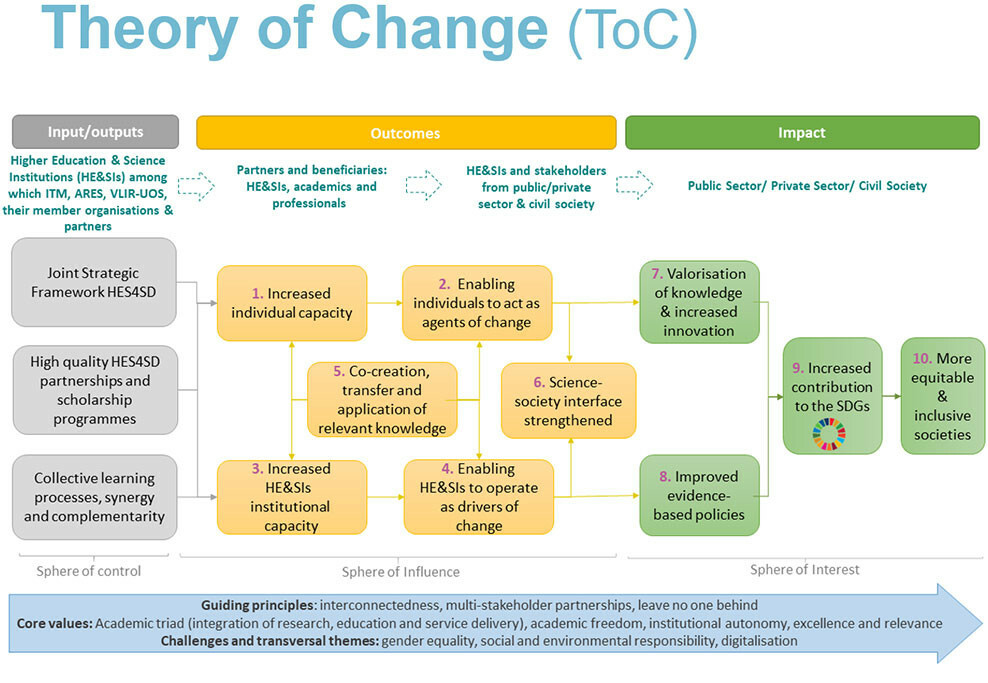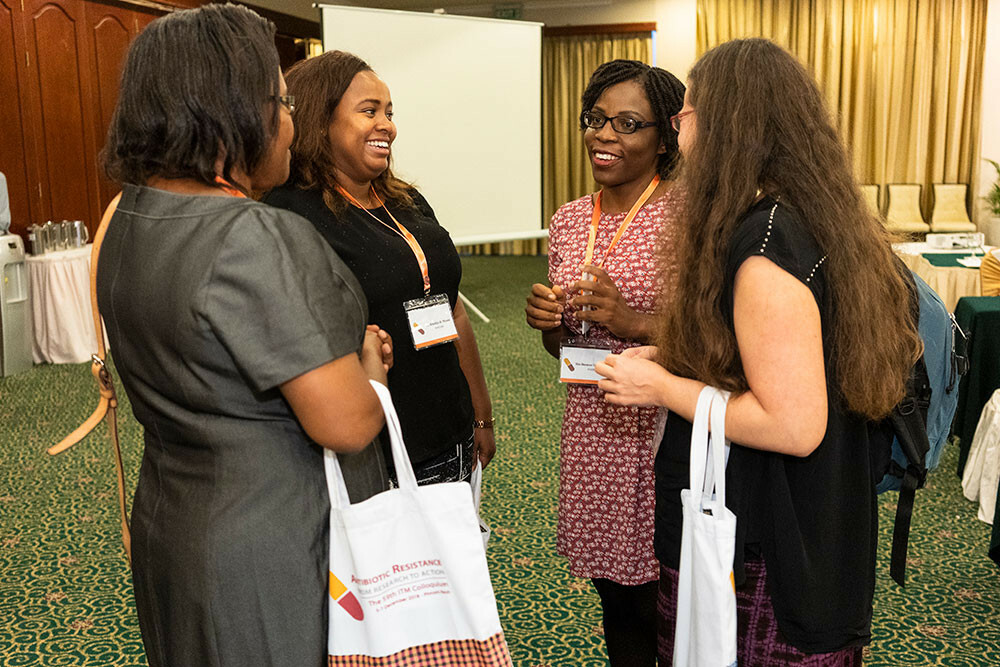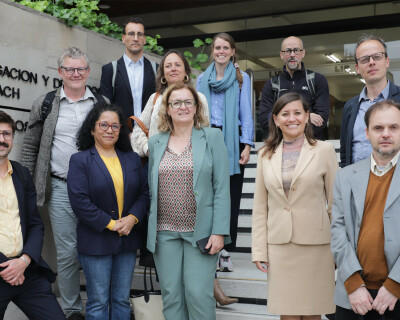
Joint Strategic Framework – Higher Education and Science for Sustainable Development
Higher Education and Science for Sustainable Development (HES4SD)
Together with VLIR-UOS and ARES, ITM developed a new thematic Joint Strategic Framework for the period 2022–2026. Joining the academic actors in one thematic framework facilitates reaching the objectives of the Belgian Royal Decree and Law of 2016, which are coordination and consultation, synergy and complementarity, and collective learning, in a strategic and more efficient manner.
Organising HES4SD within the framework of this thematic JSF allows for a clearer positioning within the Belgian and international development sector and a better understanding of its nature, objectives and working modalities by the development cooperation sector. Drawing upon their longstanding common history, the three JSF actors aim to further unlock the huge developmental potential of higher education and science cooperation for sustainable development and make it accessible to other Belgian, local and international partners
Through research, Higher Education and Science Institutions (HE&SIs) play a unique role as drivers of change, producing new knowledge and innovation to address global challenges, transferring knowledge through training and education, providing evidence for informed (public) policy and its implementation, and mobilising knowledge.
HE&SIs and individual academics and researchers have a key role to play in addressing global, regional and local challenges, through their involvement in international thematic networks where a variety of expertise is brought together. Via the JSF HES4SD, opportunities arise by activating multi-stakeholder knowledge platforms and partnerships to jointly work towards sustainable development.
The expertise that is made available through ARES and VLIR-UOS covers all disciplines, whereas ITM offers an in-depth focus on tropical medicine, public health and global health, and provides access to and experience in health arenas in fragile settings.
JSF actors
Umbrella organisations:
The core business of the two umbrella organisations is to create policy frameworks and operational frameworks for processes and modes of operation.
ARES is the federation of French-speaking institutions for higher education in Belgium. Its role is to ensure the overall coordination of their activities and to encourage the development of collaboration between them.
VLIR-UOS supports partnerships between Flemish universities or universities of applied sciences and arts, in Flanders and in our partner countries, that are searching for answers to global and local challenges.

The Joint Strategic Goals
The long-term general objective of the JSF HES4SD is to significantly contribute to the achievement of the 17 SDGs and, ultimately, “increasingly equitable and inclusive societies”. To achieve this objective, the following six strategic objectives will guide the specific interventions, starting from the specific expertise of the partners:
Strategic Goal 1 – Increasing individual capacity
Strategic Goal 2 – Enabling individuals to act as change agents
Strategic Goal 3 – Increasing capacity at Higher Education and Scientific Institutions
Strategic Goal 4 – Enabling Higher Education and Scientific Institutions to operate as drivers of change
Strategic Goal 5 – Co-creation, transfer and application of relevant knowledge
Strategic Goal 6 – Strengthening of the interface between science and society
The FA5 country programmes and global programmes all contribute to one or more of these strategic goals. The three key approaches through which these goals will be reached are:
the Joint Strategic Framework HES4SD
High-quality HES4SD partnerships and scholarship programmes
Collective learning processes, synergy and complementarity


What is a JSF?
The Joint Strategic Frameworks (JSF) were established in 2016 within the framework agreement with the Belgian government on the future of Belgian Development Cooperation. In a JSF, the non-governmental actors set strategic goals to work on jointly or in complementary ways, based on a common context and risk analysis of a country or theme. JSF participants are all recognised non-governmental actors: civil society organisations and institutional actors.
The objectives of the JSFs are to:
promote the coordination and consultation on and of strategies between actors
create complementarity or synergy
ensure collective learning on strategies and risks
conduct a strategic dialogue with the government
